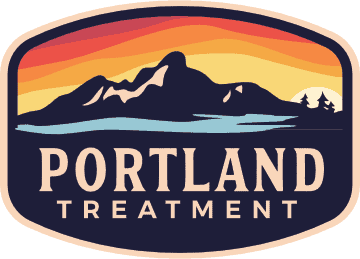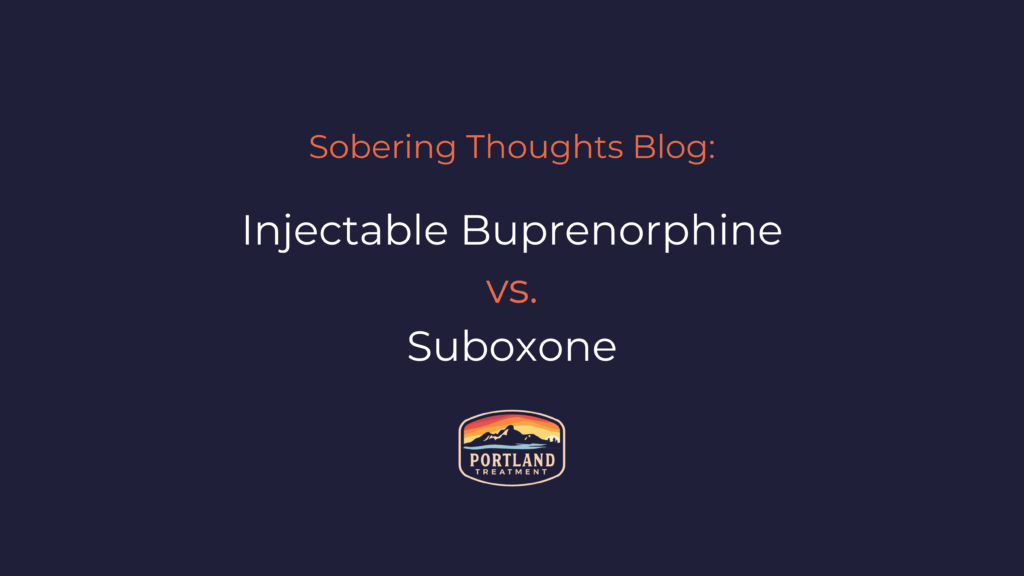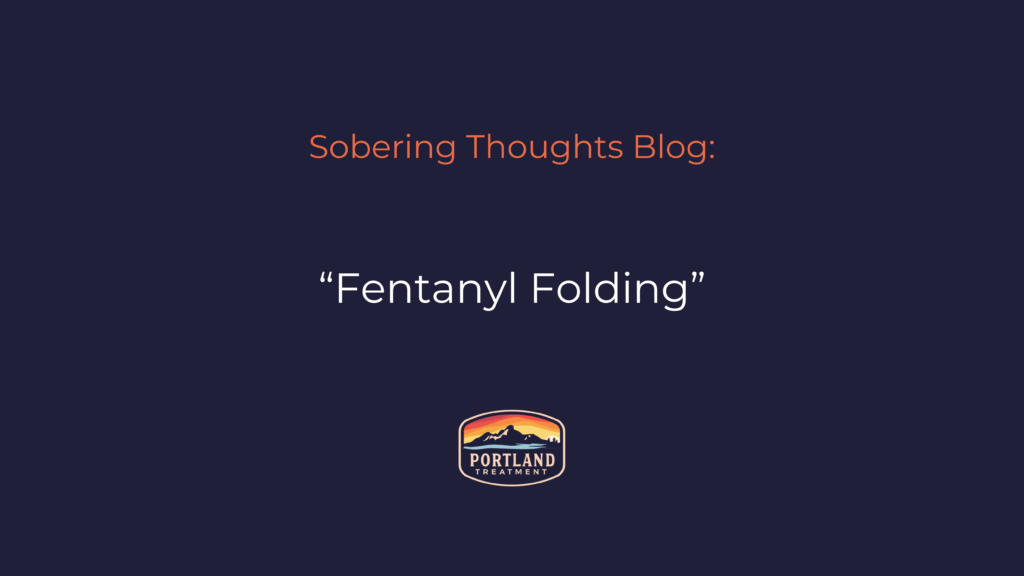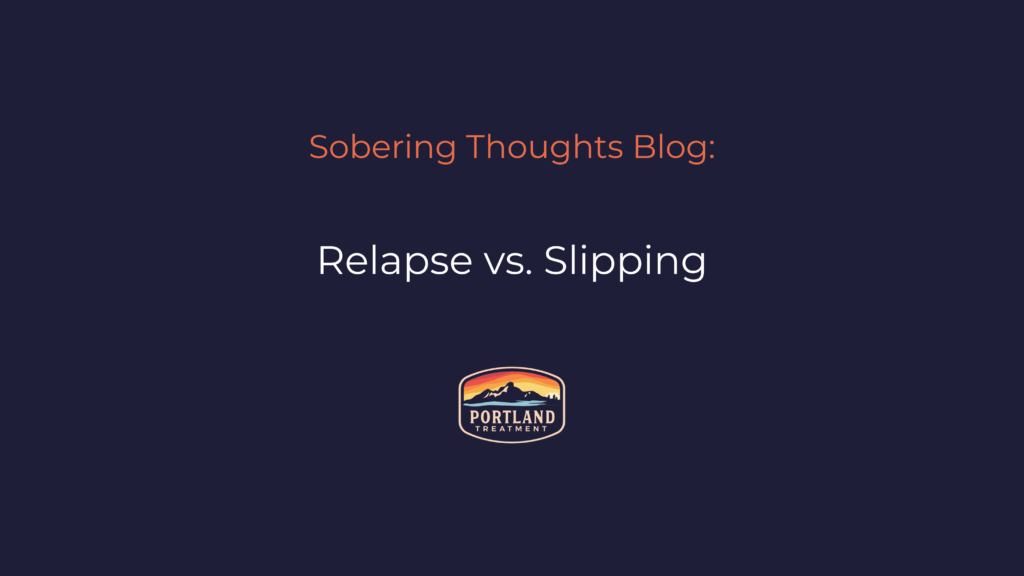Addressing the profound challenge of cocaine addiction is crucial, as it impacts both individuals and communities nationwide, extending its reach to Portland, Maine. This extensive discussion aims to examine the root causes and repercussions of cocaine addiction, with a particular focus on the statistical landscape in Portland, Maine. For those seeking support and resources related …
Addressing the profound challenge of cocaine addiction is crucial, as it impacts both individuals and communities nationwide, extending its reach to Portland, Maine. This extensive discussion aims to examine the root causes and repercussions of cocaine addiction, with a particular focus on the statistical landscape in Portland, Maine. For those seeking support and resources related to cocaine addiction, this article also provides valuable insights into the available avenues for Addiction Recovery in Maine.
Our focus will be on understanding the various treatment programs available in the area, including rehab centers and support groups. We will take an in-depth look at therapeutic approaches for cocaine addiction, such as Cognitive Behavioral Therapy (CBT), Motivational Enhancement Therapy, and Dialectical Behavior Therapy (DBT). We will discuss strategies for supporting recovery and preventing relapse, including the importance of building a strong support system and making healthy lifestyle changes.
As we continue, we will also explore the aftercare process, the transition from rehab to aftercare, and the available aftercare programs in Portland, Maine. We will highlight legal and community resources, including legal assistance for individuals with cocaine addiction and the various community outreach and support programs available in the area. This article aims to provide valuable insights and resources for individuals seeking effective strategies for cocaine addiction around Portland, Maine.
Understanding Cocaine Addiction
Understanding cocaine addiction involves diving into the complex interplay between the drug’s effects on the brain, the behavioral patterns of individuals, and the challenges of withdrawal and treatment.
Physiologically, cocaine directly affects the brain’s reward circuit, leading to the release of excessive dopamine, inducing intense pleasure and reinforcing addictive behaviors. This disruption alters normal brain function, impacting decision-making, impulse control, and emotional regulation.
Psychologically, the euphoric rush from cocaine creates a powerful psychological dependence, driving individuals to compulsively seek the drug despite negative consequences, leading to a destructive cycle of addiction.
Addressing cocaine addiction involves supervised treatment programs, such as cognitive-behavioral therapy, medication-assisted therapy, and support groups, tailored to the individual’s needs. Managing withdrawal symptoms like depression, fatigue, and strong cravings is crucial for successful recovery.
The impact of cocaine addiction extends beyond the individual, affecting relationships, employment, and overall well-being. Recognizing the multifaceted nature of this addiction is essential for developing comprehensive and effective intervention strategies.”
Causes and Effects of Cocaine Addiction
Cocaine addiction stems from the powerful impact of the drug on the brain’s dopamine pathways, leading to intense euphoria and reinforcing addictive behavior in individuals.
Upon ingestion, cocaine swiftly crosses the blood-brain barrier, rapidly affecting dopamine levels. This surge results in a heightened sense of pleasure and energy, and over time, the drug alters the brain’s reward system, leading to craving and compulsive drug-seeking behavior. Long-term cocaine use has been linked to neurobiological changes, including reduced dopamine receptor availability, which can exacerbate the cycle of drug dependence.
Behaviorally, addicted individuals may display increased impulsivity, risk-taking tendencies, and difficulties in regulating emotions. Professional intervention from addiction specialists is crucial to address the complex neurobiological and psychological factors underlying cocaine addiction. Through personalized treatment plans, including cognitive-behavioral therapy and pharmacotherapy, patients can work towards long-term recovery and restored brain function.
Statistics on Cocaine Addiction in Portland, Maine
In Portland, Maine, the prevalence of cocaine addiction has been a significant concern, with a notable impact on substance abuse and addiction rates within the community.
According to recent studies, cocaine addiction has affected approximately X% of the population in Portland. This alarming statistic reflects the urgent need for effective intervention and treatment programs to address this pervasive issue.
The impact of cocaine addiction extends beyond individual health, contributing to increased crime rates and social instability within the city. Recognizing the complex nature of addiction, community organizations and healthcare professionals are working tirelessly to provide support and resources for those struggling with cocaine addiction.
Seeking Professional Help for Cocaine Addiction
Seeking professional assistance is essential when dealing with cocaine addiction as it opens the door to comprehensive treatment programs, rehabilitation, and monitored detoxification methods. Taking this step enables individuals to conquer the challenges posed by addiction in a supportive and effective manner.
Enlisting the help of professionals guarantees that individuals receive personalized treatment plans that cater to their unique needs. These plans often encompass a range of therapeutic approaches, such as individual or group therapy, cognitive-behavioral therapy, and medication-assisted treatment. By addressing both the physical and psychological aspects of addiction, these programs offer a holistic framework for recovery.
Rehabilitation plays a crucial role in the recovery process, providing individuals with valuable support and guidance along their journey. Both inpatient and outpatient programs offer expert supervision from experienced professionals who assist in navigating the complexities of recovery. This professional guidance ensures that individuals are well-equipped to overcome the challenges they may face.
Supervised detoxification, carried out under medical supervision, ensures the safe and effective management of withdrawal symptoms. By minimizing health risks and discomfort associated with detox, individuals can embark on their recovery journey in a secure environment. It is important to note that although Portland Treatment does not currently offer detox services for drugs and alcohol, they can assist individuals in finding detox options in Maine. Their warm and inviting approach makes them the ideal resource to help individuals through this critical phase of their recovery.
In conclusion, seeking professional help is paramount for individuals struggling with cocaine addiction. Through comprehensive treatment programs, rehabilitation, and supervised detox, they can receive the necessary support and guidance to overcome the challenges of addiction. Contact Portland Treatment for compassionate assistance in finding detox facilities in Maine that will ensure a safe and warm transition towards recovery.
Types of Treatment Programs Available
Various treatment programs for cocaine addiction, including therapy-based approaches, outpatient programs, and dual diagnosis treatment, cater to the diverse needs of individuals seeking recovery.
Therapy-based approaches focus on addressing underlying psychological factors contributing to addiction, providing individuals with coping strategies and emotional support. Outpatient programs offer flexibility, allowing individuals to receive treatment while still maintaining their daily routines.
Dual diagnosis treatment is crucial for individuals with coexisting mental health disorders, ensuring that both conditions are effectively addressed to promote lasting sobriety. Each program utilizes a combination of counseling, medication management, and behavioral therapies to create a comprehensive and individualized approach to recovery.
Rehab Centers and Support Groups in Portland, Maine
In Portland, Maine, a range of rehab centers and support groups provide specialized care, including men’s, women’s, and young adult rehab programs, to address the diverse needs of individuals battling cocaine addiction.
These centers offer comprehensive treatment plans tailored to the specific needs of each demographic. For men, the focus may be on building emotional resilience and addressing underlying trauma. Conversely, women’s rehab programs may incorporate specialized therapy to cater to their unique challenges.
The young adult programs often integrate education and vocational training to give the power to individuals in their recovery journey. Support groups play a vital role in fostering a sense of community and understanding among peers facing similar struggles.
Therapeutic Approaches for Cocaine Addiction
Therapeutic approaches for cocaine addiction encompass a diverse range of interventions, including cognitive behavioral therapy, dialectical behavior therapy, and contingency management, tailored to address the complex nature of addiction.
Cognitive behavioral therapy, or CBT, is focused on identifying and modifying negative thought patterns and behaviors associated with cocaine addiction. It helps individuals develop coping strategies to resist cravings and avoid relapse. Dialectical behavior therapy, on the other hand, emphasizes mindfulness, emotion regulation, and interpersonal effectiveness. It assists in managing intense emotions and improving relationships, which are often affected by substance abuse.
Contingency management offers reinforcement and incentives for maintaining abstinence, typically through rewards for drug-free urine samples. This approach employs a system of rewards to encourage positive behaviors and decrease drug use. Each of these therapeutic methods plays a vital role in supporting individuals through their recovery journey, addressing both the psychological and behavioral aspects of cocaine addiction.
Cognitive Behavioral Therapy (CBT)
Cognitive behavioral therapy (CBT) stands as a cornerstone in the treatment of cocaine addiction, focusing on addressing maladaptive behaviors and thought patterns while promoting mental health and recovery.
By targeting cognitive distortions, CBT helps individuals recognize and challenge their negative thought processes, which is particularly pertinent in substance abuse treatment. It equips patients with coping strategies to handle triggers, cravings, and stress more effectively. CBT also fosters a deeper understanding of the underlying issues contributing to addiction, aiding in breaking the cycle of dependence.
Research has shown that CBT, when integrated with other therapeutic approaches, significantly improves recovery outcomes and reduces the risk of relapse.
Motivational Enhancement Therapy
Motivational enhancement therapy represents a valuable intervention for addressing drug cravings and fostering intrinsic motivation for recovery among individuals grappling with cocaine addiction.
This therapy focuses on harnessing an individual’s internal resources, giving the power to them to initiate positive changes in their substance use behavior. By utilizing techniques such as motivational interviewing and personalized feedback, therapists can guide individuals towards examining their ambivalence about change and building their confidence to pursue and sustain recovery.
One of the notable benefits of this therapy is its customizable nature, allowing for tailored strategies that cater to each individual’s unique needs and circumstances. This individualized approach enhances the effectiveness of the intervention, as it addresses the specific triggers and motivations driving the person’s substance use.
Dialectical Behavior Therapy (DBT)
Dialectical behavior therapy (DBT) offers a comprehensive approach to managing emotional dysregulation and maladaptive behaviors associated with cocaine addiction, emphasizing the principles of behavioral therapies.
DBT focuses on four key components including:
- Mindfulness, distress tolerance, emotion regulation, and interpersonal effectiveness.
These components aim to help individuals enhance their emotional awareness, develop coping strategies for distressful situations, regulate intense emotions, and improve relationships. DBT has shown effectiveness in reducing symptoms of various mental health disorders, including substance use disorders. By addressing the underlying emotional vulnerabilities that drive addictive behaviors, DBT plays a vital role in aiding individuals in overcoming cocaine addiction and preventing relapse.
Supporting Recovery and Preventing Relapse
Supporting recovery and preventing relapse in cocaine addiction involves fostering a strong support system, encouraging healthy lifestyle changes, and identifying and managing triggers that may precipitate relapse.
A crucial aspect of supporting recovery is building a network of individuals who can provide emotional, practical, and moral support. This may include family, friends, support groups, and mental health professionals. Their understanding and encouragement can make a significant difference in the individual’s journey towards sobriety.
Encouraging healthy lifestyle changes is equally important. This encompasses regular exercise, a nutritious diet, adequate sleep, and stress management techniques. These changes not only contribute to physical well-being but also improve mental resilience, making it easier to cope with triggers.
Identifying and managing triggers involves recognizing the situations, emotions, or people that may tempt individuals to use cocaine. Once identified, strategies can be developed to avoid or cope with these triggers. This may involve learning new coping mechanisms, engaging in alternative activities, or seeking professional help when necessary.
Building a Strong Support System
Establishing a robust support system, including the involvement of family therapy, plays a pivotal role in facilitating the recovery journey of individuals grappling with cocaine addiction.
Individuals battling addiction often face numerous challenges, and the support of their loved ones and professional guidance can make a significant difference in their rehabilitation. Family therapy not only provides an opportunity for open communication and understanding among family members but also addresses underlying familial dynamics that may contribute to the addiction.
It helps individuals and their families navigate through conflicts, establish healthy boundaries, and develop coping mechanisms that are crucial for long-term recovery.
Healthy Lifestyle Changes
Incorporating healthy lifestyle changes, such as regular exercise and a nutritious diet, can aid in mitigating the physical effects of cocaine addiction and promoting long-term recovery and well-being.
Healthy lifestyle changes play a crucial role in supporting individuals in overcoming the adverse effects of cocaine addiction and restoring their physical and mental health. Engaging in regular physical activity and exercise not only helps in reversing the damage caused by drug abuse, but also contributes to an improved cardiovascular system, enhanced mood regulation, and strengthened immunity.
A nutrient-rich diet promotes the body’s ability to repair and rejuvenate, leading to better organ function, increased energy levels, and heightened cognitive function. By maintaining a balanced and healthy diet, individuals can replenish essential nutrients and revitalize their overall well-being, fostering a sustainable approach to long-term recovery from cocaine addiction.
Identifying and Managing Triggers
Empowering individuals to identify and manage triggers that may lead to relapse is a crucial aspect of the recovery journey from cocaine addiction, promoting mental health and relapse prevention.
This process involves creating a personalized plan that accounts for the individual’s specific triggers, which can vary greatly from person to person. By understanding and acknowledging these triggers, individuals can develop effective coping strategies to navigate challenging situations without turning to cocaine use.
Recognizing triggers can also lead to a deeper understanding of one’s emotional and psychological state, allowing individuals to address underlying issues that may contribute to the urge to use cocaine. Building resilience and developing healthy coping mechanisms to manage stress, anxiety, and other triggers is essential in maintaining long-term recovery.
Understanding the Aftercare Process
Understanding the aftercare process post-rehabilitation in Portland, Maine, is vital for ensuring sustained support and integration of recovery strategies for individuals overcoming cocaine addiction.
Aftercare plays a crucial role in easing the transition from structured treatment to everyday life, providing essential support and guidance to navigate potential triggers and challenges. It encompasses a range of services, such as counseling, support groups, and continued monitoring, tailored to meet the specific needs of each individual.
The Portland, Maine community recognizes the importance of aftercare in fostering lasting recovery and reducing the risk of relapse. By promoting holistic wellness and encouraging the incorporation of healthy habits and coping mechanisms, aftercare initiatives aim to fortify the individual’s resilience and commitment to sobriety.
Transitioning from Rehab to Aftercare
The transition from rehab to aftercare for individuals overcoming cocaine addiction requires careful planning, support, and potential legal assistance to address residual challenges and ensure continued progress.
After completing a structured rehab program, individuals recovering from cocaine addiction face a crucial phase of transitioning into aftercare. This phase entails integrating back into daily life while maintaining sobriety. Professional support from counselors, therapists, and support groups is essential for managing potential triggers and cravings. Moreover, careful planning for ongoing therapy, support meetings, and lifestyle adjustments is crucial to sustain recovery. Legal assistance may be necessary to navigate any legal issues that arise during addiction and ensure long-term stability.
Available Aftercare Programs in Portland, Maine
In Portland, Maine, a range of aftercare programs extends the support and resources necessary for individuals transitioning from rehab, fostering community outreach and integration into sustainable recovery networks.
These aftercare programs offer a variety of services, including counseling, support groups, vocational training, and housing assistance, with a focus on holistic healing and long-term recovery. They play a vital role in providing a safe and nurturing environment for individuals to continue their journey towards sobriety, while also serving as a platform for building a strong sense of community and support system.
By collaborating with local organizations and outreach initiatives, these programs contribute to the wider goal of promoting a healthier and more resilient community in Portland.
Legal and Community Resources
Accessing legal and community resources is crucial for individuals struggling with cocaine addiction, providing essential support and assistance in navigating the challenges of substance abuse and seeking recovery.
Institutions like Portland Treatment, located near Portland, Maine, offer comprehensive programs designed to meet the complex needs of individuals facing cocaine addiction. Their warm, inviting, and compassionate approach creates an environment conducive to healing and rebuilding lives affected by drug and alcohol addiction. Portland Treatment provides drug and alcohol addiction treatment with varying levels of care, including Partial Hospitalization Program (PHP) and Intensive Outpatient Program (IOP).
By offering counseling, therapy, and support groups, Portland Treatment recognizes the significance of addressing all aspects of addiction, including its emotional and psychological impact. Their dedicated team of professionals understands the unique challenges faced by individuals struggling with cocaine addiction and works tirelessly to provide the support needed for a successful recovery journey.
Moreover, legal assistance is vital in addressing the underlying issues often intertwined with substance abuse, such as housing instability or legal challenges. Portland Treatment recognizes this and connects individuals with legal resources and advocacy. This comprehensive approach ensures that individuals not only receive addiction treatment in Maine but also have access to the necessary legal support to fully address their needs.
Portland Treatment, located in proximity to Portland, Maine, is committed to providing individuals with the comprehensive support necessary to overcome their addiction, heal their lives, and find lasting recovery. Their focus on empathy, understanding, and specialized care sets them apart as a beacon of hope in the field of addiction treatment in Maine.
Legal Assistance for Individuals with Cocaine Addiction
Legal assistance plays a crucial role in addressing the health problems and legal implications faced by individuals grappling with cocaine addiction, and navigating the complexities of the Controlled Substances Act and related regulations.
Seeking legal guidance is essential for individuals dealing with cocaine addiction as it enables them to understand the legal consequences of their actions and helps them access necessary healthcare services. Legal professionals can assist in mitigating the legal ramifications of addiction by navigating the intricacies of the Controlled Substances Act and providing counsel on applicable regulations. They can aid individuals in accessing treatment options and support programs aimed at overcoming cocaine addiction.
Community Outreach and Support Programs
Community outreach and dedicated support programs in Portland, Maine, play a vital role in extending assistance and resources to individuals seeking rehabilitation and recovery from cocaine addiction.
These initiatives are instrumental in creating a nurturing environment that fosters hope and promotes a sense of belonging among those struggling with addiction. By offering access to counseling, medical treatment, and educational resources, these programs give the power to individuals to embark on a journey toward sobriety and long-term wellness.
The collaborative efforts between community organizations and rehabilitation centers contribute significantly to reducing the stigma associated with addiction and facilitate a smoother reintegration process for individuals in recovery.
Why Portland Treatment is an Excellent Choice for Addiction Treatment in Maine
At Portland Treatment, we understand the complexity of battling addiction and the importance of finding the right treatment. Our approach to addiction treatment is holistic, focusing not only on the physical aspects but also on the emotional and psychological well-being of our clients.
Our Programs and Services
Our treatment programs are comprehensive and personalized. We offer a range of services tailored to meet the unique needs of each individual. This includes:
- Partial Hospitalization Program (PHP): Ideal for those seeking intensive therapy while residing at home or in a sober living environment.
- Intensive Outpatient Program (IOP): A flexible option that allows clients to balance therapy with their daily responsibilities.
- Outpatient Treatment: A supportive bridge between intensive care and long-term recovery, offering customized support for sustainable sobriety.
Treating a Range of Conditions
We specialize in treating various substance addictions, including Adderall, Alcohol, Ativan, and others. Additionally, our expertise extends to addressing mental health issues such as anxiety disorders, depression, and PTSD, which often co-occur with substance abuse.
Commitment to Safe and Ethical Treatment
Our commitment to providing safe, ethical, and effective treatment is unwavering. At Portland Treatment, we believe in empowering our clients with the tools and support necessary for a successful recovery journey.
Contact Us
If you or a loved one is struggling with addiction, contact us today to learn more about our programs and how we can help you on the path to recovery. Portland Treatment is your partner in overcoming addiction and achieving lasting wellness.






